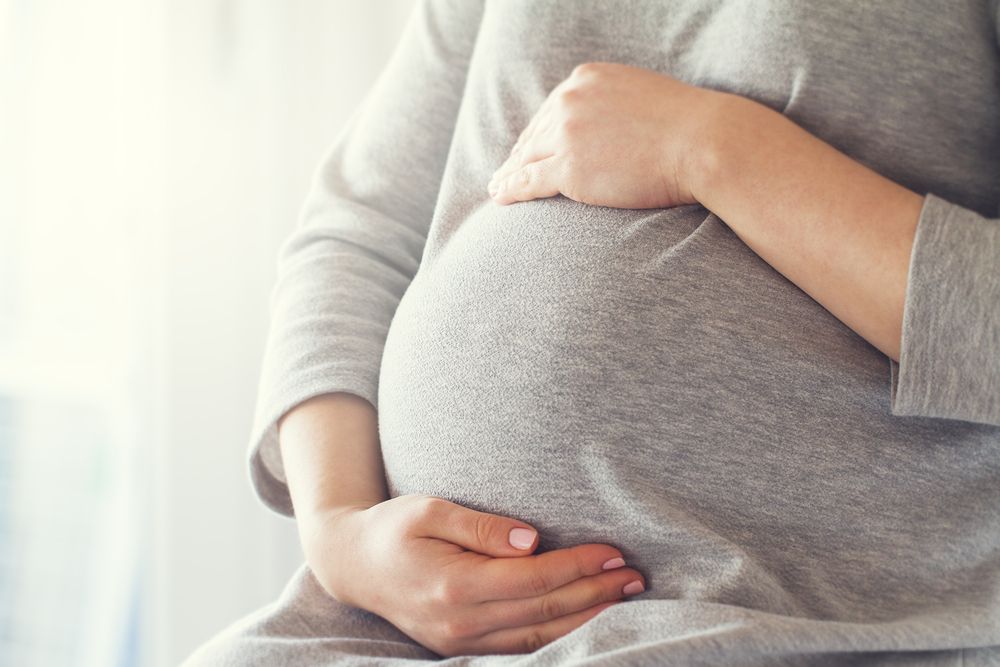Pregnancy-associated aHUS Occurs Post-Partum, After Pregnancy Complication, and Is Successfully Treated with Soliris, Study Suggests
Written by |

Pregnancy-associated atypical hemolytic uremic syndrome (aHUS) usually occurs postpartum, after a pregnancy complication — such as preeclampsia, severe bleeding, and fetal death — and is treated effectively with Soliris (eculizumab), according to a review study.
The data highlighted the previously unexplored variety of clinical scenarios in which the disease may occur, and the importance of closely following these pregnancy complications, which may trigger pregnancy-associated aHUS.
The study, “Pregnancy-Associated Atypical Hemolytic Uremic Syndrome: A Systematic Review,” was published in the journal Obstetrics & Ginecology.
aHUS belongs to a group of rare disorders called thrombotic microangiopathies (TMAs), which are characterized by the destruction of red blood cells, low levels of platelets, and the formation of blood clots in small blood vessels that lead to organ damage.
aHUS results from an abnormal activation of the complement system, a set of more than 50 blood proteins mainly produced by the liver that contribute to the body’s natural immune defenses. Mutations in complement system genes are estimated to cause the disease in roughly 60% of patients.
Approximately 10–20% of aHUS diagnoses are associated with pregnancy, and previous studies suggested that more than half of these women also carry complement mutations.
However, how and when pregnancy-associated aHUS develops, as well as the pregnancy outcomes in these women, remain poorly understood. Also, since pregnant women were excluded from the clinical trials that led to Alexion’s Soliris approval, there is limited data on its effectiveness in pregnancy-associated aHUS.
Soliris, an engineered monoclonal antibody approved by the U.S. Food and Drug Administration for treating aHUS, works by specifically targeting a component of the complement system, called protein C5.
Now, researchers at the Cedars-Sinai Medical Center, in Los Angeles, set out to better characterize pregnancy-associated aHUS, treated or not with Soliris, through the systematic review of published studies describing aHUS in pregnancy or postpartum. All of the studies were written in English.
The literature search resulted in the identification of 48 eligible reports comprising 60 women with pregnancy-associated aHUS. From a total of 66 pregnancies reported, 54 were associated with the first episode of pregnancy-associated aHUS, while 12 occurred in women with known aHUS before conception.
Regarding first-episode pregnancy-associated aHUS, available data showed that diagnosis occurred more frequently in the postpartum period (94% of cases), after a cesarean delivery (70% of the cases), and during a first pregnancy (58% of the cases).
Diagnoses also were often preceded by pregnancy complications, including preeclampsia or high blood pressure (57% of the cases), fetal death (28% of cases), and severe bleeding (22% of cases).
“Thus, a major limitation to expedited diagnosis and treatment of pregnancy-associated aHUS may be co-occurrence with other pregnancy complications,” the researchers said, adding that it is important to closely follow pregnant women with preeclampsia and severe bleeding, especially those with complement gene mutations.
Diagnosis was usually based on the triad of destruction of red blood cells, low levels of platelets, and kidney failure, but other clinical and genetic tests were also conducted. Women were treated with several strategies, including corticosteroids, plasma exchange, dialysis, and Soliris.
Soliris was given to 17 (31%) women with pregnancy-associated aHUS and nine (75%) with previously diagnosed aHUS. The results showed that more women receiving Soliris achieved disease remission than those who were only treated with other therapeutic options. In addition, Soliris’ therapeutic success often occurred after failure of the other treatments.
Notably, there were no reports of persistent kidney failure, dialysis, or maternal death among the 17 women with pregnancy-associated aHUS treated with Soliris, compared with such reports in 24% of women who did not receive Soliris.
Among women with known aHUS there was a higher risk of disease recurrence, which was associated with pregnancy termination and preterm birth. Only one pregnancy resulted in a healthy term delivery, without complications or disease relapse, but the following pregnancy was associated with several complications.
The researchers emphasized that women with aHUS or pregnancy-associated aHUS who develop chronic kidney disease are more likely to have particularly poor pregnancy outcomes and disease relapse.
“Both aHUS and pregnancy-associated aHUS are serious, life-threatening thrombotic microangiopathy disorders, and women stand to benefit greatly from care that is guided by an expert, multidisciplinary team,” the team concluded.
One of the authors disclosed a working relationship with Alexion, Soliris’ manufacturer.




